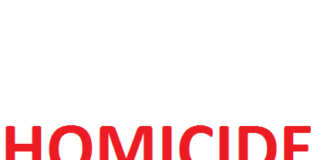
PEOPLE living with opioid-use disorder now have more options to access life-saving medication that will help support them on their pathway to treatment and recovery.
As of February 14, the College of Registered Nurses of British Columbia (CRNBC) expanded the opioid treatment prescribing standards to allow nurse practitioners around the province to prescribe medication like injectable hydromorphone, buprenorphine-naloxone and methadone. All are used in the treatment of opioid addiction.
“Nurse practitioners play an increasingly vital role providing people with life-saving care,” said Judy Darcy, Minister of Mental Health and Addictions. “This change is an important part of our government’s escalated efforts to save lives, end stigma and connect people to appropriate treatment and recovery as soon as possible. It is also one way that we are addressing the gaps and tackling the barriers that people living with addiction too often experience.”
The required training, education and practical experience that nurse practitioners need to prescribe opioid substitution treatment is provided through the British Columbia Centre on Substance Use’s (BCCSU) no-cost Provincial Opioid Addiction Treatment Support Program. Of the approximately 450 nurse practitioners throughout B.C., more than 60 have completed, or begun, their training.
“The expanded standards allow nurse practitioners to meet increasing demand for opioid substitution treatment,” said Cynthia Johansen, CRNBC’s registrar and CEO. “The college is proud to be part of a responsive and collaborative community of experts working together to meet the needs of people experiencing problems associated with opioids.”
In June 2017, the BCCSU became responsible for the education and clinical-care guidance activities for all health-care professionals prescribing medications – also known as opioid agonist treatments (OAT) – to treat opioid addiction. Nurse practitioners and physicians provide clinical care throughout the province, and are both qualified to prescribe OATs using the “Guidelines for the Clinical Management of Opioid-Use Disorder”, developed by the BCCSU.
“Amidst an overdose crisis, there is a clear need to expand access to treatment for individuals seeking support for their opioid addiction,” said Cheyenne Johnson, director of clinical activities and development at the BCCSU. “We’re pleased to provide evidence-based training, in combination with an immersive clinical experience, to ensure that nurse practitioners – and all prescribers – are well positioned to provide safe, effective, and compassionate treatment.”
“The new standards allow nurse practitioners to be more effective in responding to the health needs of our citizens,” said Katherine Bertoni, nurse practitioner and assistant teaching professor with the University of Victoria’s school of nursing. “As well, through this change, students and researchers will now be able to better understand and address the profound challenges of those individuals, their families and communities, contending with mental health and addiction issues.”
This announcement supports the work of the Ministry of Mental Health and Addictions to combat the overdose crisis and save lives through the expansion of access to evidence-based treatments. The ministry is working with multiple partners on a wide range of actions, spearheaded by the new Overdose Emergency Response Centre and Regional Response and Community Action Teams, which operate in communities hardest hit by the overdose crisis. These teams are working to quickly intervene to save lives, and to put services in place to better support people on a path to treatment and recovery.
The expanded prescribing standards are complemented by the federal government’s recent announcements highlighting the first-ever national guidelines, based on B.C.’s provincial guidelines, for treating people with opioid-use disorder, and regulation changes to prescribing medications used to treat opioid-use disorder. Effective May 19, prescribers will no longer require an exemption to prescribe methadone, and diacetylmorphine (prescription heroin) will be accessible beyond a hospital setting, such as substance use disorder clinics. Policy work is in progress with the CRNBC to support future prescribing of prescription heroin by nurse practitioners.










